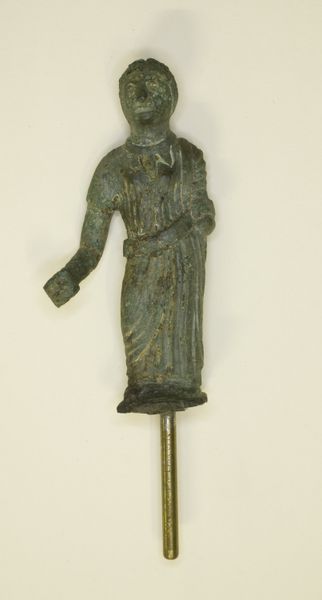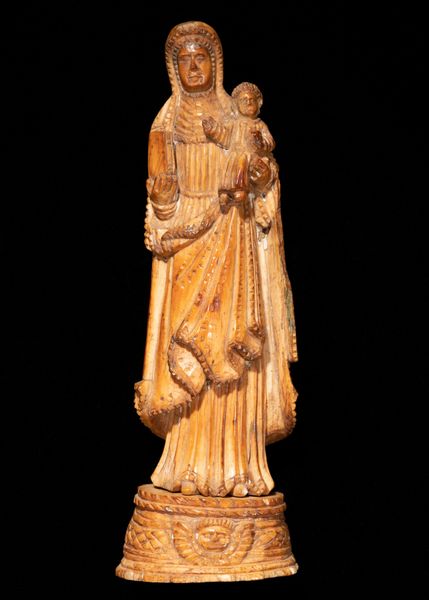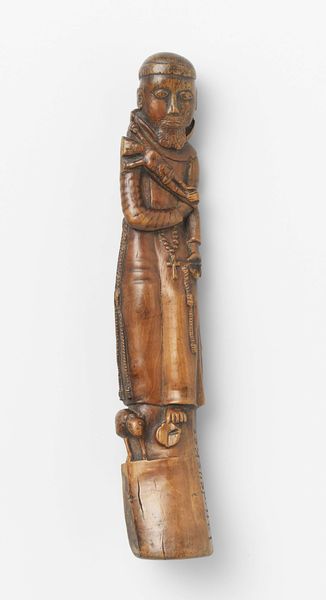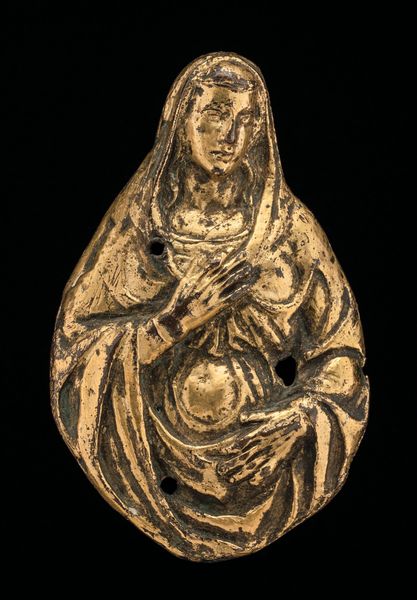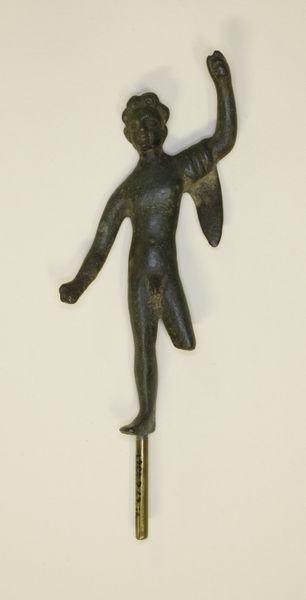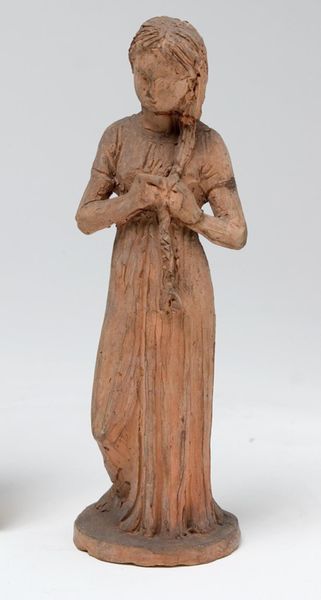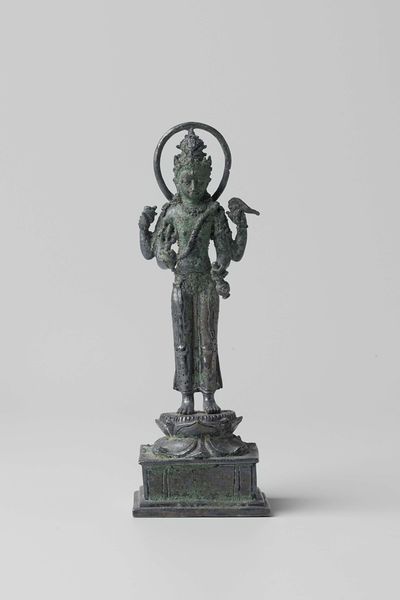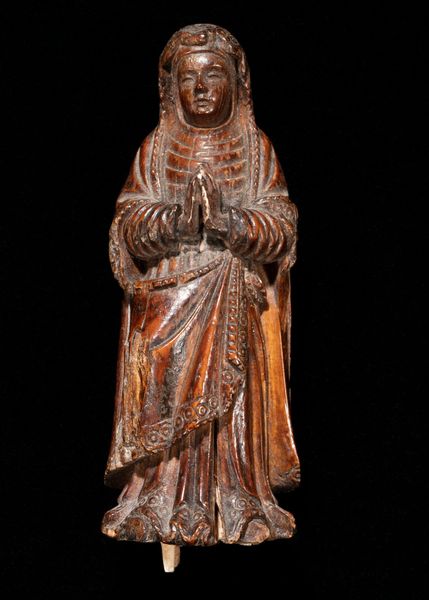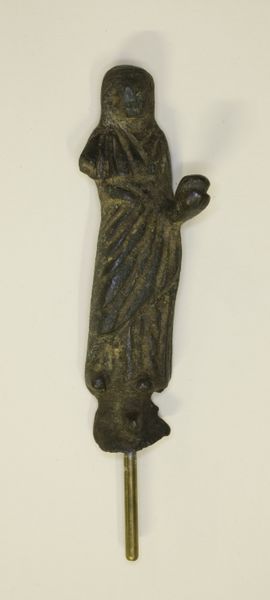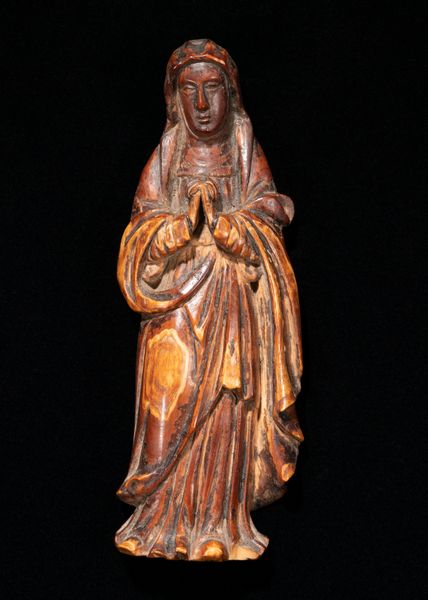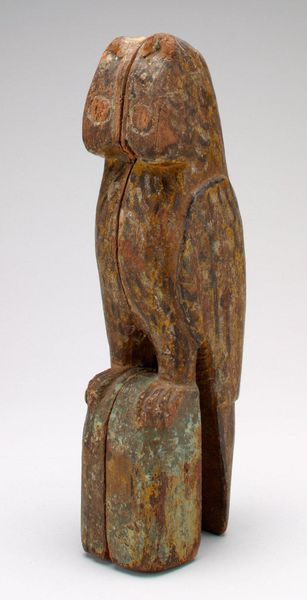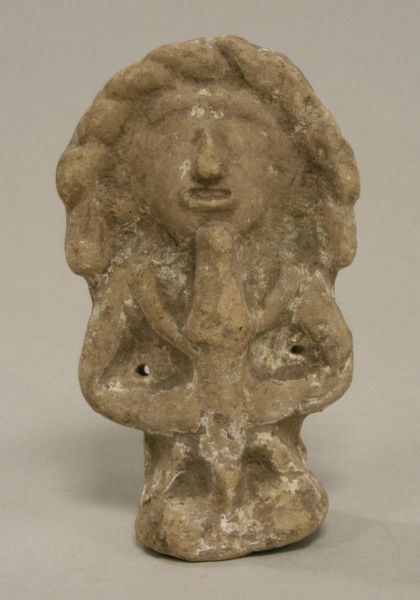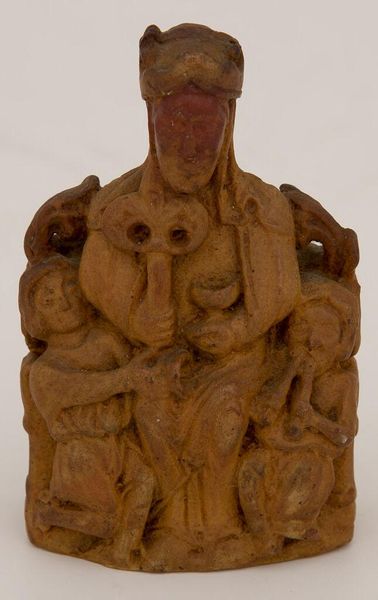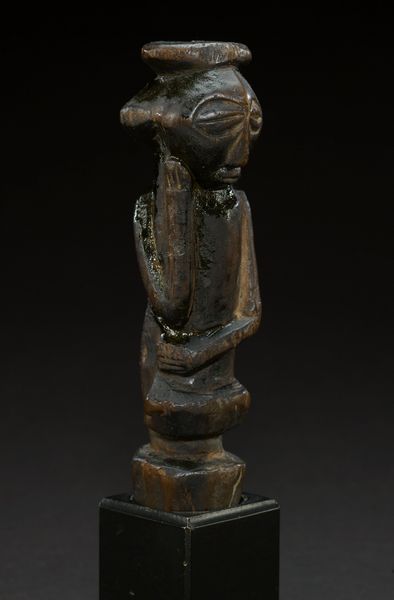
sculpture, ivory
#
medieval
#
sculpture
#
figuration
#
sculpture
#
ivory
#
gothic
Dimensions: 3 3/4 × 1 7/8 × 1 in. (9.53 × 4.76 × 2.54 cm)
Copyright: Public Domain
This small sculpture of Christ the Good Shepherd, housed at the Minneapolis Institute of Art, presents a potent symbol that transcends its modest scale. The youthful figure, with a lamb nestled at his side and another resting upon his shoulders, recalls the ancient Greco-Roman motif of the shepherd, a guardian and guide. This pastoral image was adopted by early Christians, and Christ, as the Good Shepherd, became a beacon of hope. Yet, centuries before Christianity, similar images were present in pagan art, where deities were often depicted with animals, symbolizing protection and benevolence. Consider the shepherd's pose, his hand gently supporting his head: it evokes contemplation and care. This resonates with the emotional connection between humans and animals, a bond that touches upon our deepest instincts for nurture and security. As the centuries unfolded, the Good Shepherd evolved, reappearing in different guises across art history. Its enduring appeal lies in its ability to tap into our collective memory, reminding us of the constant need for protection and guidance.
Comments
minneapolisinstituteofart about 2 years ago
⋮
The province of Goa in western India was under Portuguese control from 1512–1961, forming a nexus in trading routes that circumnavigated the earth. Goan craftsman were renowned for their supple modeling of ivory (likely exported from Mozambique) into Christian icons, which feed the appetite for luxury products in Europe, as well as furthered evangelical missions throughout Asia and the Americas. Within the genre of Indo-Portuguese ivories, popular subjects include ‘Christ as the Good Shepard’ (the image of Christ as child would have related to similar bronze statuettes of the God Krishna) and the ‘Virgin of the Immaculate Conception,’ which shows Mary atop a crescent moon, both of which remain ever-present icons in South Asia’s diverse religious landscape.
Join the conversation
Join millions of artists and users on Artera today and experience the ultimate creative platform.
